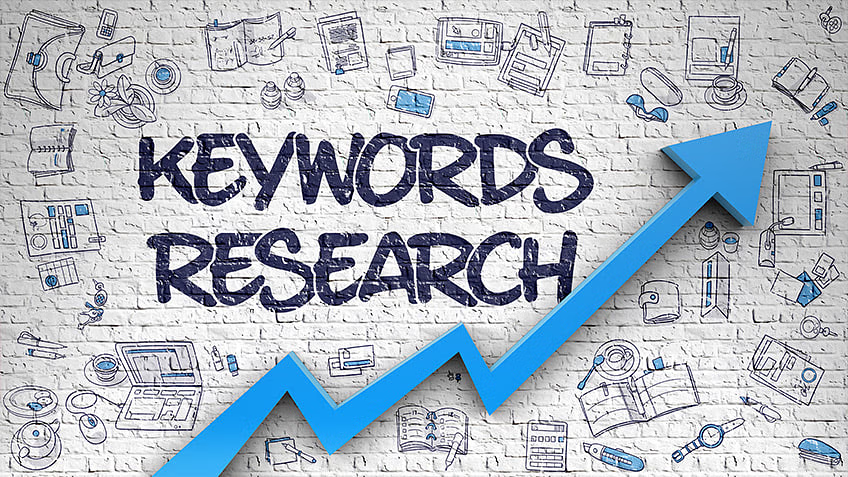Table of Contents
ToggleIntroduction to AI’s Role in Daily Life
Artificial Intelligence (AI) is no longer confined to science fiction; it has become an integral part of our everyday lives. From managing our homes to shaping our healthcare systems, AI is redefining how we interact with technology. But what does this transformation look like in 2024?
The Explosion of AI Applications
In just a few years, AI has seen exponential growth. Thanks to advancements in machine learning and big data, AI-powered tools are becoming more accessible and effective. Whether it’s a virtual assistant like Siri or an AI-driven recommendation system on Netflix, these technologies are subtly enhancing our lives every day.
AI as a Silent Partner in Daily Routines
AI has become the silent partner that handles our mundane tasks without us even noticing. From setting reminders and automating grocery orders to suggesting healthier recipes, AI seamlessly integrates into our routines, saving time and effort.

AI in Home Automation
Smart Homes with AI Assistants
Imagine waking up to a home that adjusts itself to your preferences. AI assistants like Alexa and Google Assistant can control lights, thermostats, and even coffee makers with just a voice command. These systems learn your habits over time, creating a personalized and convenient living environment.
Energy Efficiency and Smart Living
AI doesn’t just make homes smarter; it makes them greener too. Smart thermostats and energy management systems can analyze usage patterns to optimize electricity consumption. This not only reduces energy bills but also contributes to environmental sustainability.
AI in Healthcare
Personalized Medical Solutions
Wearables like Fitbit and Apple Watch now go beyond tracking steps—they analyze heart rates, sleep patterns, and other health metrics in real time. AI-powered health apps provide personalized advice, encouraging healthier habits tailored to individual needs.
Revolutionizing Medical Diagnoses
AI is transforming healthcare diagnostics by detecting diseases earlier and more accurately. Tools like AI-driven imaging systems can identify conditions like cancer or heart disease at an early stage, significantly improving treatment outcomes.
AI in Education
Personalized Learning
AI has redefined education by offering tailored learning experiences. Platforms like Duolingo use AI algorithms to adapt lessons to a learner’s pace and style, ensuring better engagement and retention of information.
AI-Powered Virtual Classrooms
With remote learning on the rise, AI-driven platforms are making virtual classrooms more interactive and efficient. Features like automated grading and AI tutors are bridging the gap between traditional and digital education.
AI in Transportation
Autonomous Vehicles
Self-driving cars are no longer just experimental—they’re becoming a reality. Companies like Tesla and Waymo are at the forefront of developing vehicles that use AI to navigate roads, ensuring safer and more efficient journeys.
Traffic Management and Route Optimization
AI plays a vital role in traffic management, analyzing real-time data to optimize routes and reduce congestion. Apps like Google Maps rely on AI to provide the fastest and most efficient travel options.
AI in Communication
Advanced Chatbots and Virtual Assistants
AI has revolutionized the way we communicate, especially through chatbots and virtual assistants. These technologies are now capable of holding natural, human-like conversations, which enhance customer service experiences. Companies like OpenAI and Google have introduced advanced bots that can answer queries, schedule appointments, and even solve complex issues, reducing wait times and improving user satisfaction.
For instance, virtual assistants like ChatGPT or Jasper AI can draft emails, create presentations, and assist with brainstorming ideas. This eliminates repetitive tasks, freeing up time for more creative pursuits. Businesses, too, leverage these tools to manage customer interactions more efficiently.
Language Translation and Bridging Gaps
Breaking language barriers is another significant contribution of AI. Tools like Google Translate and DeepL use neural networks to offer real-time, highly accurate translations. Whether you’re traveling abroad or communicating with someone from another part of the world, AI-powered translation services make it seamless to connect across languages.
Moreover, features like transcription services and multilingual voice assistants allow individuals to access information and collaborate effectively in global environments, fostering inclusivity and understanding.
AI in Business and Retail
Transforming Customer Experience
AI has redefined how businesses interact with their customers. Recommendation algorithms used by e-commerce giants like Amazon suggest products tailored to individual preferences, increasing convenience and boosting sales. AI-driven chatbots provide instant assistance, answering questions, and resolving issues around the clock.
Personalization doesn’t end there—AI analyzes purchase histories and browsing behaviors to curate shopping experiences that feel uniquely tailored to each customer. For instance, clothing retailers use AI to recommend outfits based on style preferences, while streaming platforms like Spotify create custom playlists that match users’ tastes.
Supply Chain Optimization
Behind the scenes, AI plays a pivotal role in optimizing supply chains. Machine learning models predict demand, prevent stock shortages, and streamline logistics. By analyzing patterns and forecasting trends, businesses can reduce costs, minimize waste, and improve delivery times. AI’s role in inventory management ensures that products are always available when needed, leading to greater customer satisfaction.
AI in Entertainment
Content Creation and Curation
The entertainment industry is being reshaped by AI’s capabilities in content creation. From generating storylines for movies to creating music compositions, AI tools like ChatGPT and Amper Music are unleashing new forms of creativity. Studios even use AI to edit videos, enhance visual effects, and design immersive gaming environments.
AI is also at the heart of content curation. Platforms like YouTube and Netflix rely on recommendation systems to suggest videos and shows based on viewing habits. This personalized approach ensures that users discover content aligned with their interests, making their entertainment experience more engaging.
Personalized Entertainment Experiences
Streaming services and gaming platforms leverage AI to offer highly personalized experiences. For instance, gaming systems use AI to adjust difficulty levels dynamically, ensuring players stay challenged but not frustrated. Similarly, platforms like Spotify and Apple Music use AI to curate playlists that resonate with users’ moods and preferences.
Ethical Concerns Surrounding AI
Data Privacy Issues
While AI brings immense convenience, it also raises concerns about data privacy. Many AI systems rely on collecting and analyzing vast amounts of personal information to function effectively. This creates potential vulnerabilities where sensitive data could be misused or exposed in cyberattacks.
To address these challenges, governments and organizations are implementing stricter regulations around data collection and usage. Techniques like federated learning and differential privacy are also being developed to enhance data security without compromising AI’s capabilities.
Mitigating AI Bias
Another ethical issue with AI is algorithmic bias. AI models often reflect the biases present in their training data, leading to unfair outcomes in areas like hiring, lending, or law enforcement. For example, facial recognition software has faced criticism for its lack of accuracy when identifying individuals from diverse racial backgrounds.
Researchers and developers are working tirelessly to tackle these biases by diversifying training datasets and incorporating fairness metrics. Creating unbiased and inclusive AI systems is essential to ensure these technologies benefit all segments of society.
Future Prospects of AI in Daily Life
Predictions for AI in the Next Decade
By 2034, AI is expected to become even more ingrained in our daily lives. From AI-powered personal chefs preparing meals tailored to dietary needs to virtual reality systems creating fully immersive experiences, the possibilities are endless. Advances in quantum computing may also supercharge AI’s problem-solving capabilities, unlocking new potential in scientific research and innovation.
Additionally, AI will likely play a critical role in addressing global challenges, such as climate change and resource management. Predictive models can help optimize renewable energy usage, while AI-driven solutions in agriculture can enhance food production to meet the needs of a growing population.
The Need for Responsible AI
As AI continues to evolve, there is a pressing need to ensure it is developed responsibly. Transparency in how AI systems operate, ethical guidelines for developers, and collaboration between governments and tech companies are key to safeguarding its positive impact on society.
Responsible AI development not only mitigates risks but also maximizes the benefits, ensuring that these technologies serve humanity without compromising ethical principles.
Conclusion
Artificial Intelligence is no longer a futuristic concept—it is here, transforming the way we live, work, and interact with the world. From personalized healthcare to smarter homes and enhanced entertainment, AI has become an indispensable part of our lives in 2024. While there are challenges to address, the potential for AI to improve society is immense, provided it is harnessed responsibly. As we move forward, embracing AI with a balanced approach will ensure it continues to enrich our lives for years to come.
FAQs
What is AI’s biggest contribution to daily life in 2024?
AI’s biggest contribution is its ability to streamline everyday tasks, from automating mundane chores to providing personalized healthcare and learning solutions.
How does AI improve home automation?
AI-powered systems like smart thermostats and voice assistants make homes more convenient and energy-efficient, adapting to user preferences in real-time.
Are there any risks to relying on AI in healthcare?
While AI enhances diagnostic accuracy, over-reliance may overlook the human touch in healthcare. Data privacy concerns and algorithmic errors also pose risks.
How does AI impact education quality?
AI personalizes learning, ensuring that students receive tailored educational content. However, access inequality could widen the gap between different demographics.
Can AI replace human jobs entirely?
AI is automating repetitive tasks, but it also creates new opportunities by enabling humans to focus on complex and creative work, making collaboration between humans and AI more likely than outright replacement.







